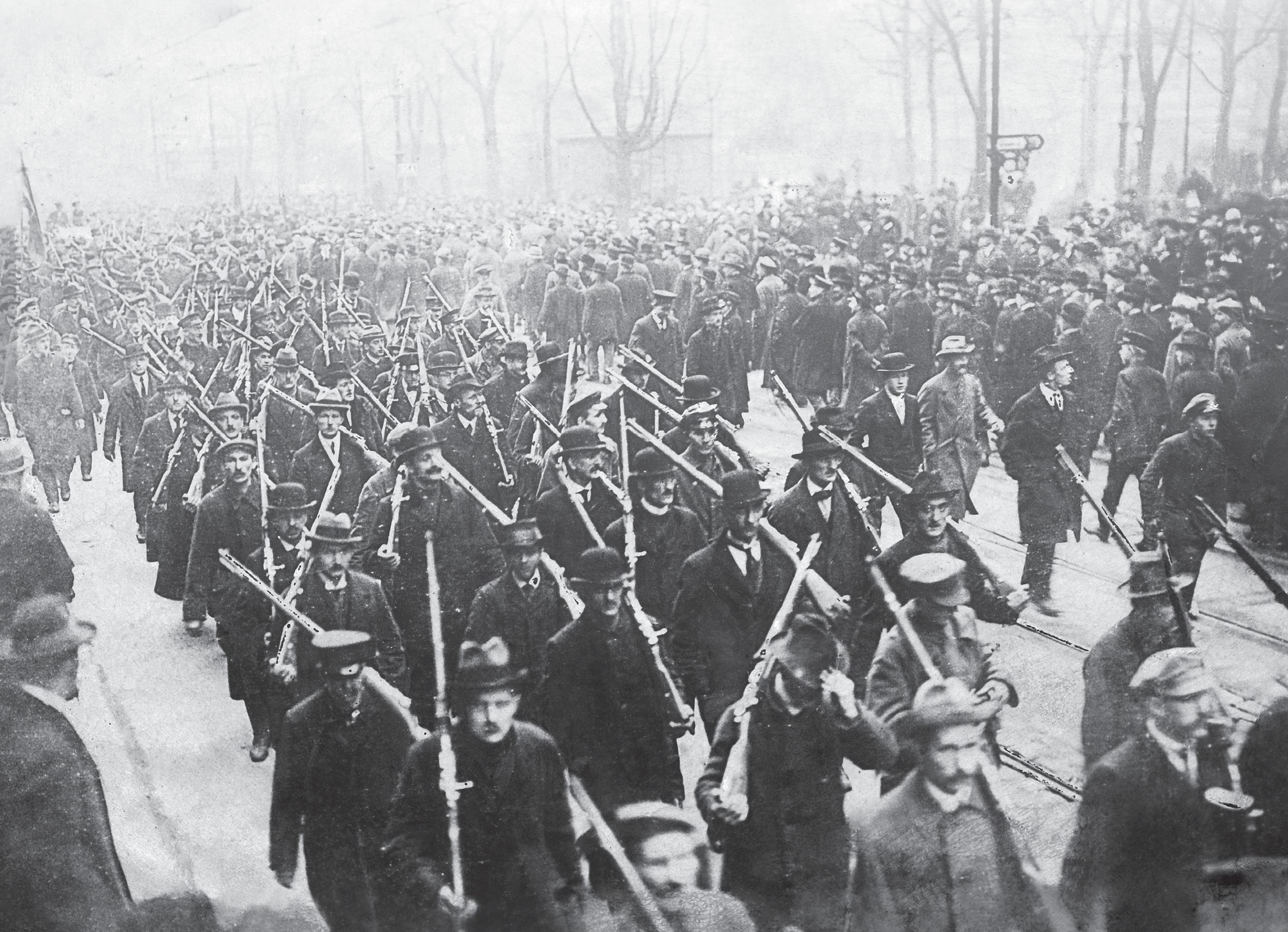
In February 1919, 2 months after signing the armistice which marked the end of the fighting in the First World War, Freidrich Ebert was sworn in as president of the German Republic. This signified the beginning of parliamentary democracy in Germany. Yet the first 4 years of what would become known as the Weimar Republic were characterised by bloodshed and violent clashes on the streets as parties from both sides of the political spectrum clashed in their efforts to replace the fledgling government. To the neutral observer, it seemed highly unlikely that the Weimar Republic would last much into the new decade.
The beginning of the end for the German war effort — aside from the Allied offensive — can be traced to the abdication of Kaiser Wilhelm on 9 November 1918. Due in part to the uprisings in Berlin and several sailors’ revolts , both of which culminated in the proclamation of a new republic, the kaiser realised that not only was the war lost, but his position was untenable.
Your organisation does not have access to this article.
Sign up today to give your students the edge they need to achieve their best grades with subject expertise
Subscribe




